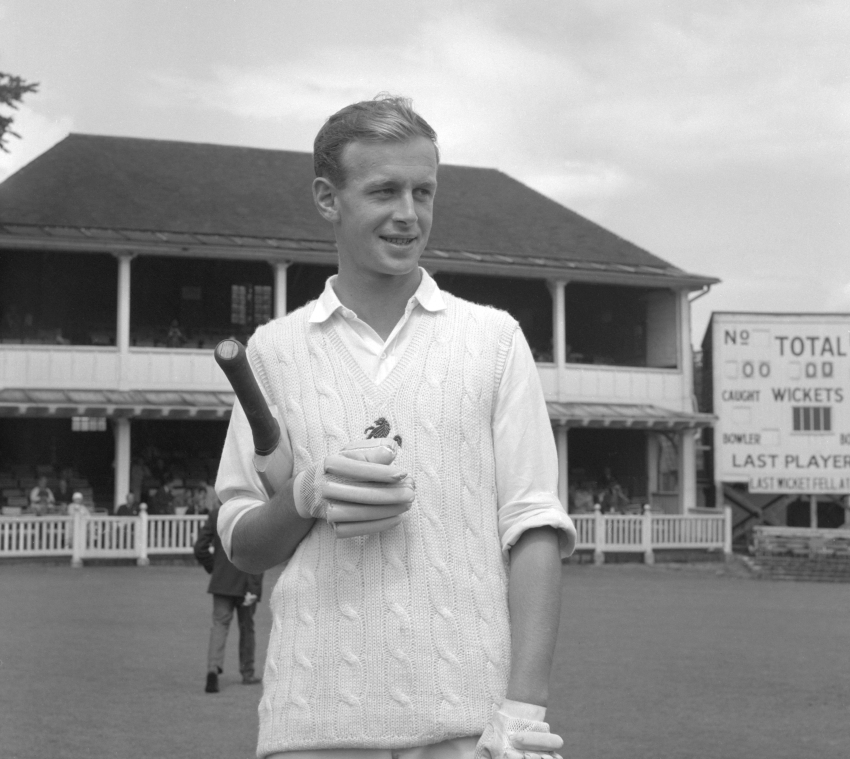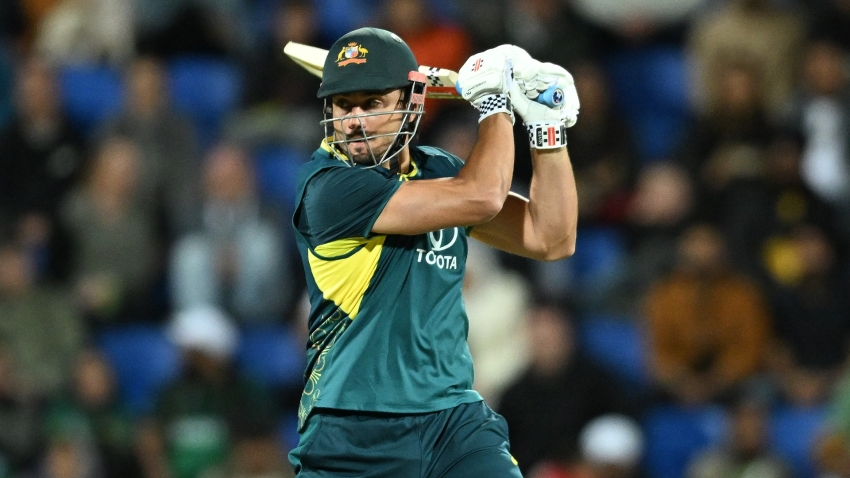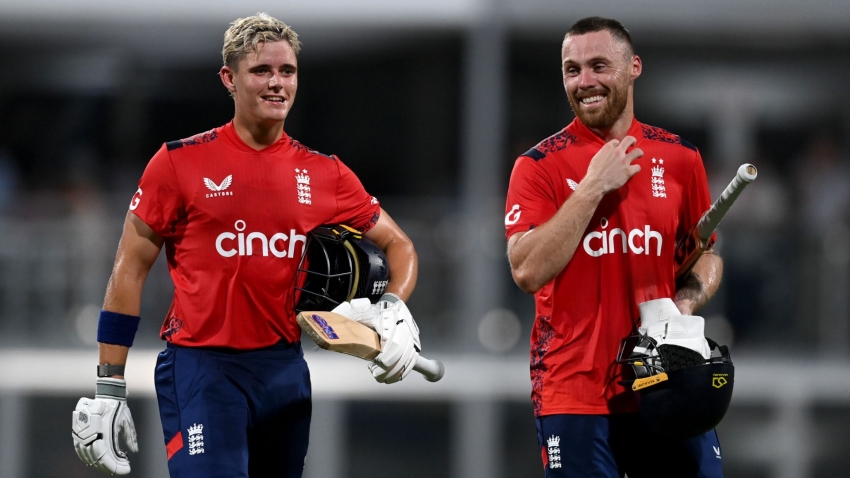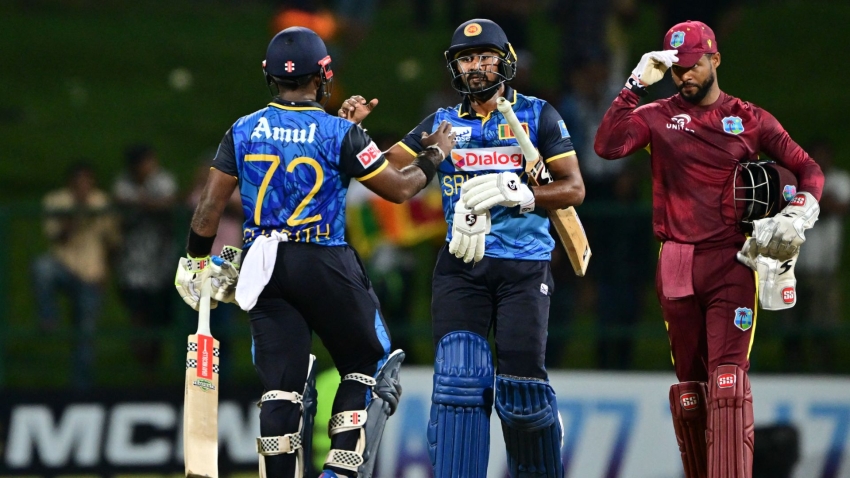More than 40 years have passed since his last Test appearance, but among English spinners the achievements of ‘Deadly’ Derek Underwood stand alone as the benchmark.
Underwood, who has died aged 78, remains the country’s most prolific, successful and revered spin bowler of his or any other period, claiming an unmatched career haul of 297 wickets.
His ubiquitous nickname was uttered affectionately by those who played alongside him and fearfully by those he came up against, a recognition of his ability to wreak havoc with his unique set of skills.
Quicker and flatter than the average slow left-armer – the first word of that descriptor always seemed out of place – he was renowned as a master manipulator of damp surfaces in the eras of uncovered pitches.
That puts him comfortably clear at the top of the England lineage – 42 ahead of the next best, Graeme Swann, and streets beyond significant figures like Tony Lock (174), Jim Laker (193) and Moeen Ali (204).
While Underwood’s record tally was undoubtedly aided by the ‘sticky dog’ conditions which later disappeared from the game, he was several decades too early to cash in on the goldmine of DRS.
While Swann won 70 lbw decisions with technology on his side, Underwood earned just 24 in a time when batters could confidently use their pad as a first line of defence.
His impressive final haul, and the legacy that goes with it, would have been even more striking were it not for two self-imposed interruptions to his international career, first for joining Kerry Packer’s World Series Cricket and later for his role in the first ‘rebel tour’ of South Africa.
The International Cricket Council’s official rankings, applied retrospectively, now places Underwood as the world’s number one Test bowler for almost four years between 1969-1973.
Among many highs, including 17 five-wicket hauls and six 10-wicket matches, he is most fondly remembered for a starring role in a classic Ashes finish at the Oval in 1968.
With a downpour threatening to preserve Australia’s 2-1 series lead, members of the crowd helped with the mopping up work to allow Colin Cowdrey’s side little more than half-an-hour to take the six wickets they needed for victory.
All eyes were on Underwood, who exploited a made-to-measure surface with a sequence of four wickets for six runs in 27 balls, wrapping things up with barely five minutes to spare and finishing with seven for 50.
In similar circumstances against Sussex five years later, he proved positively unplayable as he gorged himself with cartoonish figures of eight for nine.
Born on June 8 1945 in Bromley to a cricketing family, his aptitude revealed itself early at Dulwich College Preparatory School when he took nine wickets in an innings for the under-10s.
He went one better by claiming all 10 in an outing for Beckenham and Penge Grammar School and was later spotted by Lock, who passed an excited recommendation on to Kent.
After making his first-class debut for them at just 17, taking 101 wickets in each of his first two seasons, he progressed to the Test arena by the tender age of 21.
A year later Alan Knott, a long-time accomplice from schoolboy cricket to the Kent first XI, followed him and one of England’s defining bowler-wicketkeeper partnerships took root.
Mark Nicholas, broadcaster and former Hampshire captain, once described batting against the pair as being “piggy-in-the-middle of a collaboration in genius”.
Underwood proved himself a reliable matchwinner when the elements assisted – it was said England carried him like an umbrella, for he was indispensable when it rained – and relentlessly miserly when they did not.
That combination had already yielded 265 Test scalps in 74 caps when he was lured away by the Packer revolution in 1977, a decision that brought overdue financial security and no real regrets.
He was welcomed back for a lower-key second act, making 12 more appearances and signing off with eight wickets in Sri Lanka’s inaugural Test, before bringing down the curtain for good by joining the controversial trip to Apartheid-era South Africa in 1982.
Underwood continued to turn out for Kent for several seasons and finished up a three-time County Championship winner, including the 1970 title which ended a 57-year wait.
Having reached 1,000 first-class wickets as a 25-year-old – only Wilfred Rhodes and George Lohmann had ever completed the feat quicker – he finally added a century to his list of achievements at the age of 39.
For a batter best known for belligerent efforts as a nightwatchman, it was a proud late addition to an already-glittering CV.
Husband to Dawn and father to two daughters, Heather and Fiona, he was appointed president of the MCC in 2008 and an honorary fellow of Canterbury Christ Church University in later life.
A relatively low-profile retirement followed, belying his status as a fixture in any conversation about an all-time England XI.































